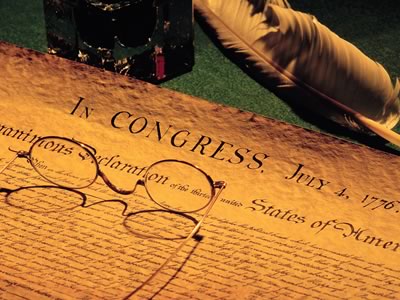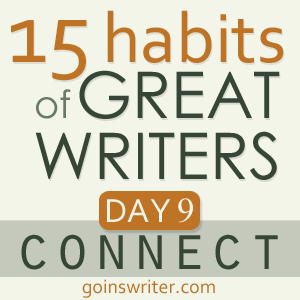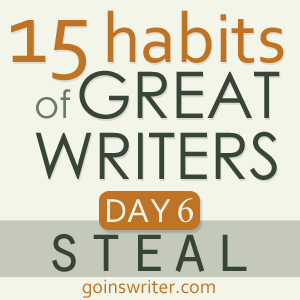A few weeks ago, I asked my friend Rachel if she would write a guest post for my blog this summer. Rachel is one of a select few writer friends I know in the “real” world as well as in the online world, and I really treasure her for that connection we have with words. Like a lot of us writer-mama’s, Rachel’s love of the written word has taken a back seat to school and family and working and all the stuff that goes into ordinary life.
But in 2010 something happened in Rachel’s life that helped her not only re-discover the writer inside, but embrace it. Here, I’ll let her tell you in her own beautiful words…
I wrote my first book when I was 5. It was called “R is for Rachel.” I became a writer in that moment, but I ran from my writerhood my whole life, without even realizing it.
I never considered being a writer as a child even though I was always writing journals, plays, and short stories. I first wanted to be a programmer, because my dad was. In junior high, I briefly considered becoming a journalist, but I was bitten by the performing bug.
I have always been a singer, but when I was accepted to a performing arts program in high school, I was convinced that Broadway was my destiny. I still kept journals and would often write short stories in them. In college, as a freshman theater major, I documented meeting my first boyfriend in a short story. I even illustrated it!
Theater wasn’t for me. I transferred and changed my major to psychology. There, my writing ability was finally recognized; my philosophy professor asked me to be his writing fellow. I immersed myself in the required Comp class—we met and shared our writing as we sat and drank coffee and tea. I felt so creative, so intellectual. My professor wrote on one of my papers: “I could get this published for you.”
That should have been the moment, right? The moment I figured it all out.
But it wasn’t.
A year later, my Social Psych professor raved about my term paper—not just the content, the writing. Finally, the light bulb went off, and I changed my major to English. I should be a writer. I mostly wrote for classes, which was a LOT. I wrote a little on my own, and had a poem published in the literary journal.
Since graduating, I’ve been an editor and a business analyst. I wrote for the job, but would rarely write for myself, largely because I didn’t think I was a “real” writer. But something happened that transformed me into a writer. My third son, Colin, was born on October 20, 2009.
We knew at 20 weeks of pregnancy that Colin had multiple Congenital Heart Defects (CHDs) and that he would face surgery very soon after he was born. He looked completely perfect at birth, but we knew there was a tiny, broken heart beating in that little chest. When he was nine days old he was taken from me in pre-op after a prayer with the chaplain in the hopes that surgery would go very well and that he would be on the road to recovery right away. But that’s not what happened.
He barely made it out of surgery. He had to be put on ECMO (extracorporeal membrane oxygenation) because when he was removed from bypass, his heart was beating at 250 beats per minute. ECMO would do his heart’s work for him and allow it to rest and recover. Then he went septic and nearly died, again. Then he seemed to rally. He needed a few more procedures and the hope was that all would be well. But it wasn’t. He fought, valiantly, for 109 days. On February 7, 2010, he died.
He had been in distress all day with increased respiration, blood pressure and heart rate. None of the usual tricks were working. There was nothing left to do surgically. He already had a brand new chest tube in from a few days earlier. We decided that we had to stop all measures and let him go. When his heart stopped within seconds of removing him from the ventilator, we knew that it had been the right decision to make.
It was the single worst day of my life.
But it was also the day that the writer in me, who had been lying dormant for so long, was reborn. I started to journal, to write song lyrics and poems, just to get it all out of me. I wanted to tell his story, our story, so badly. I started a blog and posted my first entry on April 23, 2010. I wrote a few entries, and then set it aside. I continued to write, just not for other people.
Then, suddenly, opportunity knocked. I had been talking about starting to write again and had just completed a creative non-fiction class. Creative juices were flowing and I was ready to do it for real. An online friend from the CHD world mentioned to me that she knew someone who was starting an online magazine for parents who had experienced child loss, infertility, or some combination thereof (more common than you would ever imagine). So, I reached out, with a lump in my throat, and I offered up my services as a guest poster. She responded by asking me to be a monthly contributor! I now write two articles per month for Still Standing. I have written more blog posts in two months than I did in the two years prior. I have been asked to guest post on two blogs (including this one!) and I am so full of ideas that I am finding my current job frustrating because I wish I could just quit and write full time. My goal is to fully tell the story of our family’s journey with and without Colin.
It took me about 30 years to get here.
To become a writer.
I often wonder: if Colin hadn’t been born or if he had lived instead of died, would find myself where I am today? I can’t be sure. But I’m going to give him all the credit.
Thanks, Colin, for making your mama a writer.
 Rachel Kain is a writer, musician and yoga teacher who makes ends meet as an IT business analyst. She’s also a wife and mother. Words are her passion and she is grateful to be able to write about the grief journey for Still Standing Magazine (http://stillstandingmag.com). You can find her blog, Writers Write, at http://bewriting.wordpress.com. She blogs about whatever comes to mind. As a lifelong writer who is finally sharing her work with the world, she is searching for her voice, join her as she finds it.
Rachel Kain is a writer, musician and yoga teacher who makes ends meet as an IT business analyst. She’s also a wife and mother. Words are her passion and she is grateful to be able to write about the grief journey for Still Standing Magazine (http://stillstandingmag.com). You can find her blog, Writers Write, at http://bewriting.wordpress.com. She blogs about whatever comes to mind. As a lifelong writer who is finally sharing her work with the world, she is searching for her voice, join her as she finds it.





